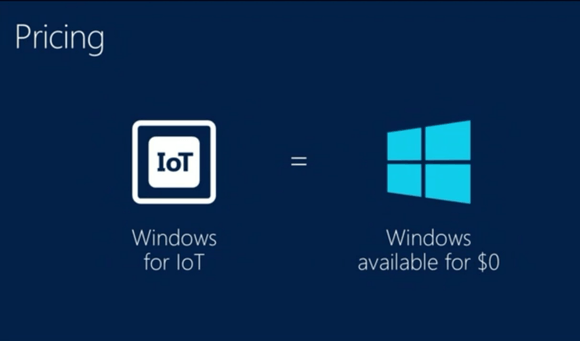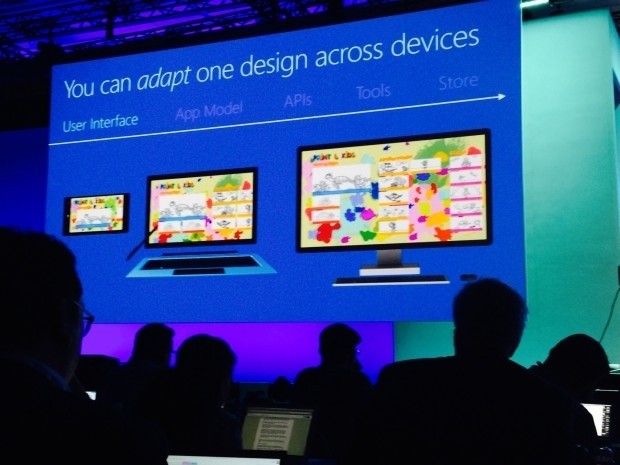Microsoft on Wednesday revealed plans to make Windows free for manufacturers to use on smartphones and tablets with screen sizes under nine inches. Furthermore, a future version of Windows for the Internet of Things will also be completely free - moves that will no doubt help the Redmond-based company better compete with Android and increase market share in the red-hot mobile sector.
The company also used its Build 2014 keynote to announce universal Windows apps. As the name suggests, this is a method that will allow developers to create a single app that will work across Windows PCs, phones, tablets and on the Xbox One.

Specifically, developers will be able to reuse much of the code they wrote - in the language of their choosing - on one platform across all others via Visual Studio. From there, only small tweaks will be needed to fine-tune the app for each platform - like adding support for the Kinect and controller on the Xbox One or adjusting the look based on the form factor.
As Microsoft operating system executive David Treadwell pointed out, users may not have to buy a different app for each device because it's the same app in use across all devices. It'll be up to developers to decide if they want to require a user to pay for their app on the PC and the phone, for example, or allow a single purchase to grant access across all platforms.

What's more, activities like notifications and in-app purchases should sync across all iterations of the app via the cloud.
It may all sound a bit boring but truth be told, it's a really big deal for Microsoft that'll likely entice more developers to code for Windows and to encourage them to bring established apps to less established platforms. In the end, that means more app choices which is a win for everyone.
